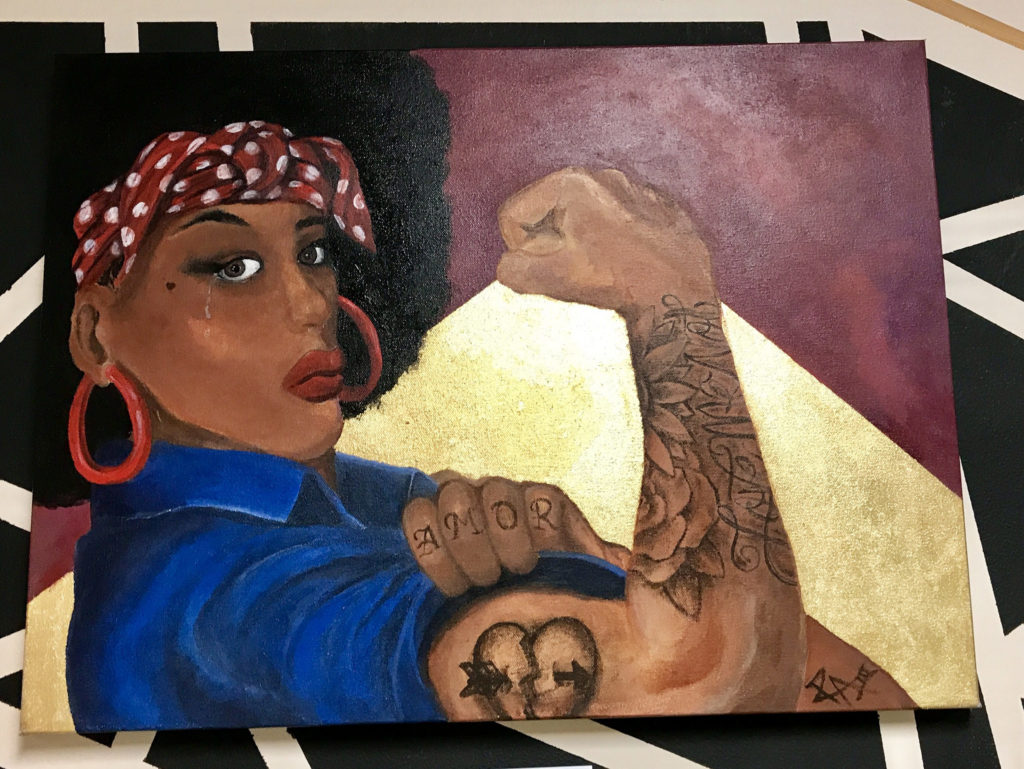Buffie Longmire-Avital, Associate Professor of Psychology at Elon University, and alumna Ruthie Robinson, investigate the rates of depression in Black and White collegiate women. The results of their study, recently published in the Journal of College Student Psychotherapy, demonstrate that Black women experience more perceived stress and are more likely to endorse depressive symptoms than White peers. The authors highlight the impact of racism and minority stress on Black collegiate women’s psychological well-being.
“Where one in five White females in the current sample met criteria for MDD [Major Depressive Disorder], an alarming one in two Black females met criteria for MDD. Given that race is a social construction with no biological merit, this finding calls attention to the contextual sociological factors that are contributing to the development of the disease instead of the individual biological causes,” write the researchers.

The researchers report, “Depression is closely linked to the level of stress than an individual perceives and experiences in their daily life.” Chronic stress, such as racial minority stress, can lead to physical and mental health problems.
The authors cite a study on low-income women finding “various intersecting systems of oppression contribute to depressive symptomatology; specifically the women’s experience with sexual objectification, racist events, and gender-racism.” Research suggests that Black women are more likely to meet criteria for depression but less likely to seek treatment.
Emerging adulthood (ages 18-25) is also associated with higher rates of depression, and college students often face unique stressors (e.g., academic, financial). However, much of the research on college students has been done with White students, despite the increasing enrollment of racial minorities in colleges and universities.
To address this gap, the researchers chose to study the intersection of these identities in Black collegiate women. They write, “The purpose of this study is to explore racial differences and other contributing factors in the prevalence of clinical depressive symptoms for emerging adult women that are enrolled in a college or university.”
The researchers recruited a sample of 369 Black and White college women to compare their depressive symptoms. Thirty-nine percent of the sample identified as Black. Participants took an online survey including questions on perceived stress and the Center for Epidemiological Studies Depression Scale (CESD), which was used to assess depressive symptoms and whether participants met criteria for clinical depression.
Out of the total sample, 34% met criteria for Major Depressive Disorder. Rates of depressive symptoms were significantly higher in Black women (average CESD score of 24.6) than White women (average CESD score of 15.7). Similarly, significantly more Black women (52%) than White women (22%) met criteria for Major Depressive Disorder. Also, Black women experienced more perceived stress than White women. In both Black and White women, participants who experienced more perceived stress also experienced higher rates of depression symptoms.
The authors utilize a Social Determinant of Health framework and highlight “that it is the ingrained social structures of our society, and not any individual differences, that are the root cause of any racial and socioeconomic differences in health outcomes that disproportionately disadvantage minority racial groups in the United States.”
Many scholars have critiqued the use of psychiatric diagnosis to explain distress related to prejudice or oppression, especially for women of color. David Walker, a writer for Mad in America, stated in an MIA article that when we relabel people’s suffering from oppression as ‘depression,’ “the political and social perpetration of oppression gets obscured, legitimate and understandable reactions are reframed as individual pathology, and mental and emotional affliction directly traceable to the social problems of racism, poverty, displacement, intolerance, war, and hatred are ascribed to deficiencies and impairments of the victims themselves.”
The present study adds to the growing body of literature demonstrating adverse health effects of racism and oppression. The authors conclude, “In addition to colleges and universities utilizing these results to inform the creation of awareness programs, supportive systems, and environments for their rapidly diversifying populations, these findings reinforce the need for a more nuanced and inclusive discussion of the barriers to sustaining mental health and access across all populations.”
****
Longmire-Avital, B. & Robinson, R. (2017) Young, depressed, and Black: A comparative exploration of depressive symptomatology among Black and White collegiate women. Journal of College Student Psychotherapy. Advance online publication. doi:10.1080/87568225.2017.1344114 (Link)














